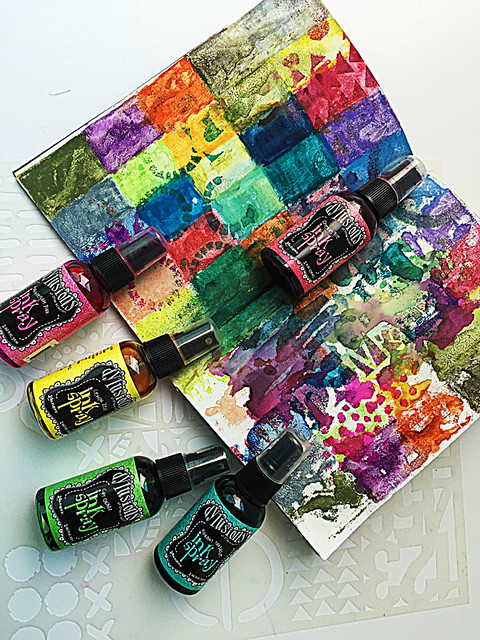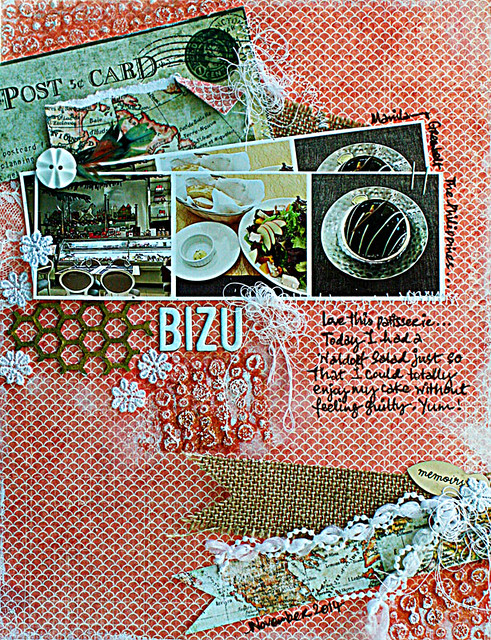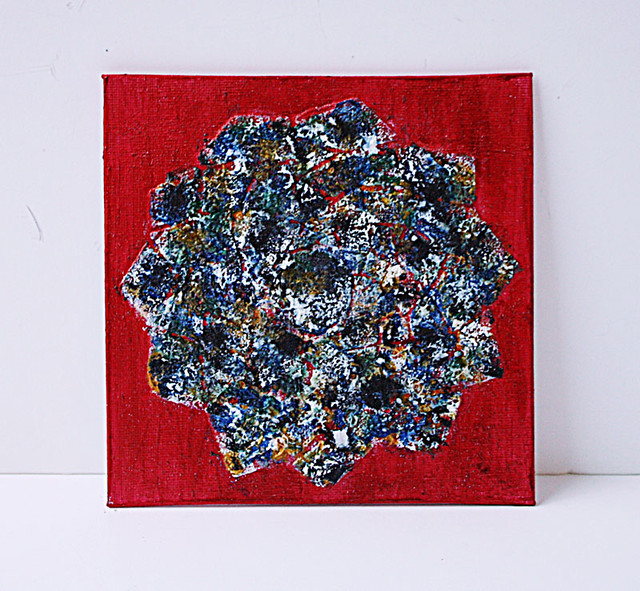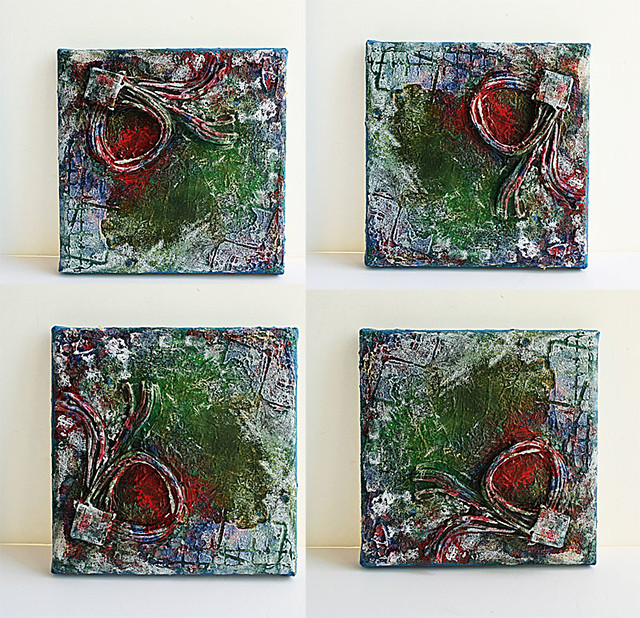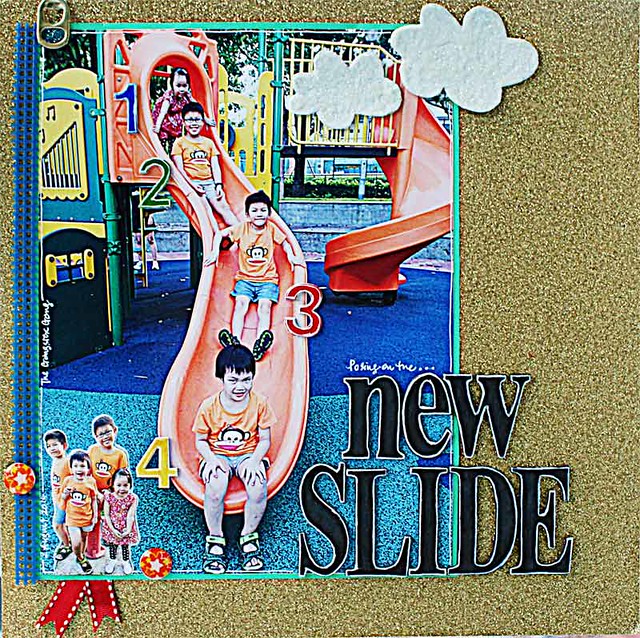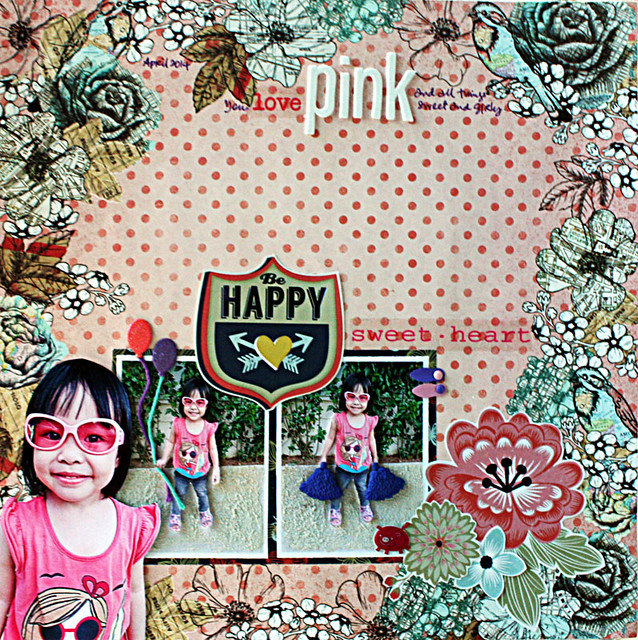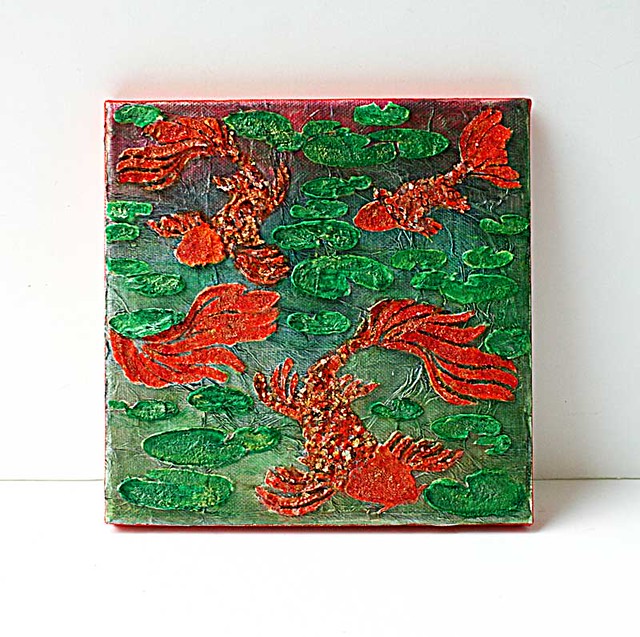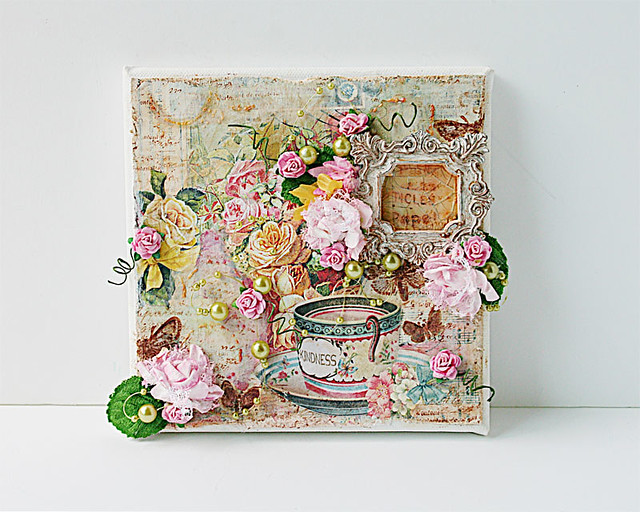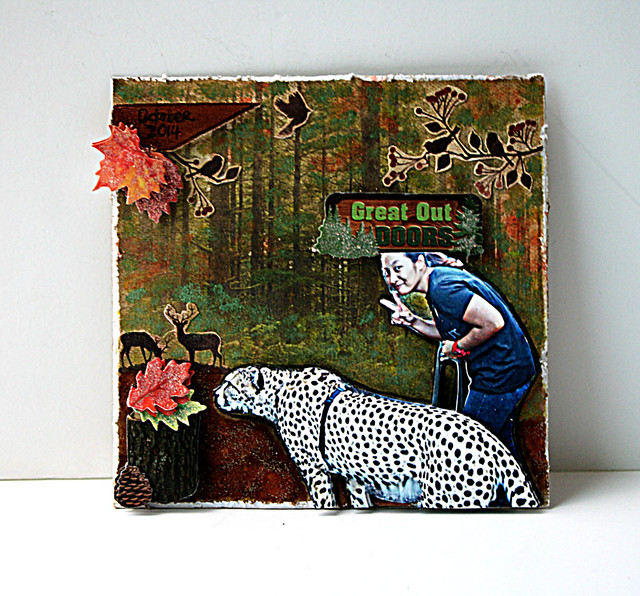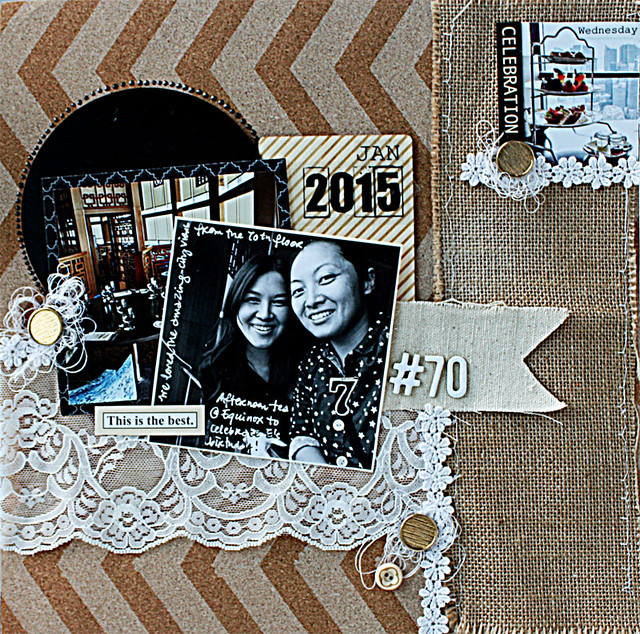Ever wonder why some layouts seem to "come to life" and somehow guide your eye to the important elements on them? When you have flow and movement, your compositions tend to be a little more dynamic and far more interesting to look at. Here are some tips to make your compositions a little more dynamic.
1. Employ the zig and zag method.
Lines and shapes within an image that "zig and zag" through the picture create a feeling of movement like in this super large photo of The Gangster Gang [
aka nephews + niece] on the slide. One is naturally gravitated to the curves on the slides.
You can easily achieve the dynamism through a well-composed photo. But you can also fake it by placing embellishments in strategic positions to emulate the zig and zag method.
2. Add props to create the illusion of movement.
I added props that suggest movement in the layout by letting my niece hold balloons and pom pons. Note that the strings attached to the balloons are not straight but slightly curved to create the illusion of movement. The wavy textures on the pom poms add to the whole movement illusion.
3. Play with proportions and light to create dynamic movement.
You can also play with size and light to suggest movement. On this canvas, the largest fish is right up front which suggests that that particular fish is closest to the viewer. The background on the top is darker which suggests that those fishes there are further away.
4. Harness the power of the consecutive.
I'm a huge fan of consecutive shots to convey dynamism. Help guide the brain by including consecutive numbers too and you are right there watching my niece change expressions. *winks*
5. Extend the patterns and shapes with textures.
Our eyes naturally gravitate towards textural objects so extend the patterns and shapes of your background with a variety of harmonious textures.
6. Create a "scene" that suggests dynamic movement.
It can be super fun to create a "scene"...I added some "prey" in the cheetah's line of vision and coloured in shadows to suggest that the cheetah is about to "attack" its unsuspecting prey!
There you have it. 6 ways to make your composition more dynamic and interesting. Which one will you use?
